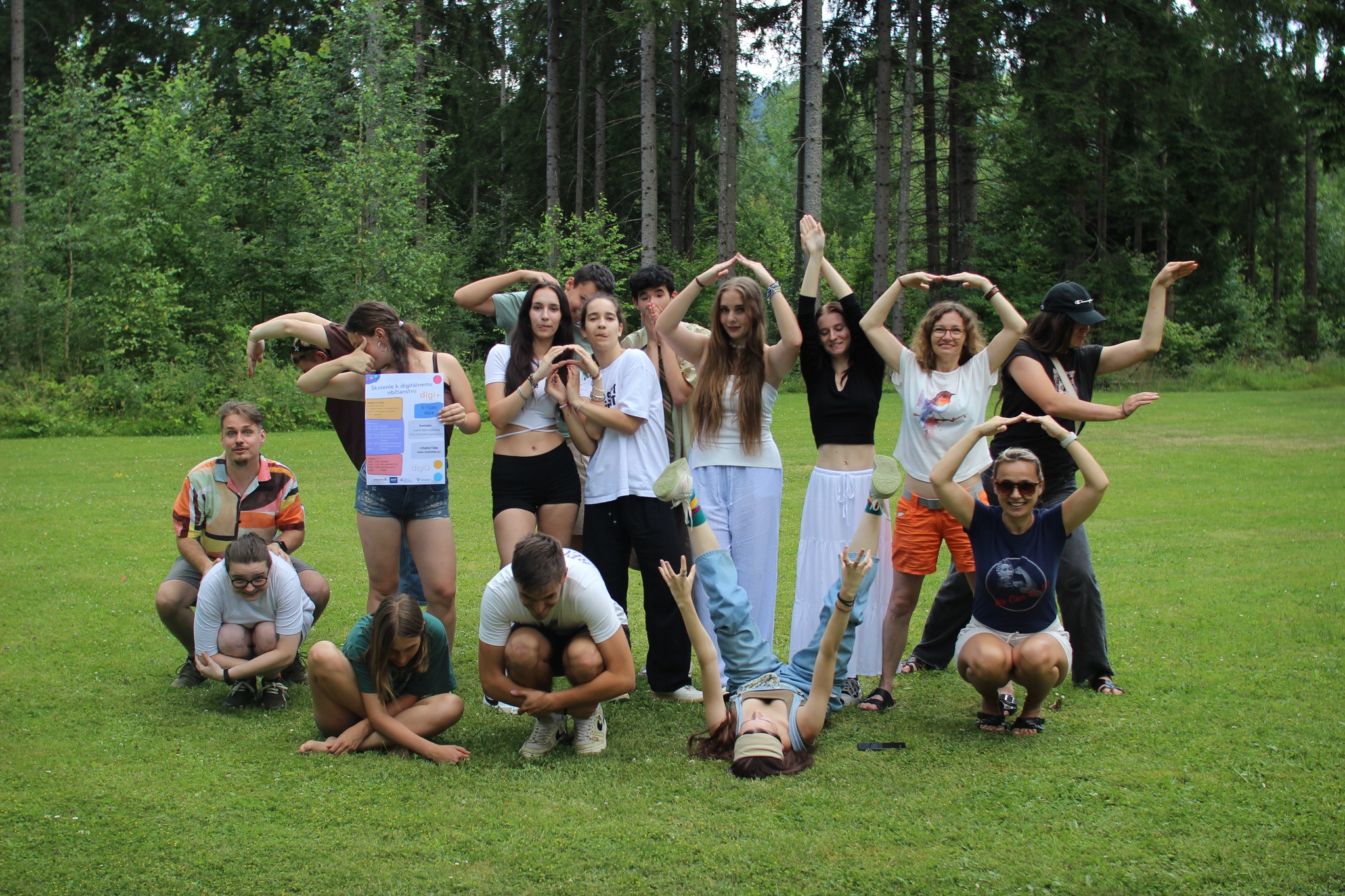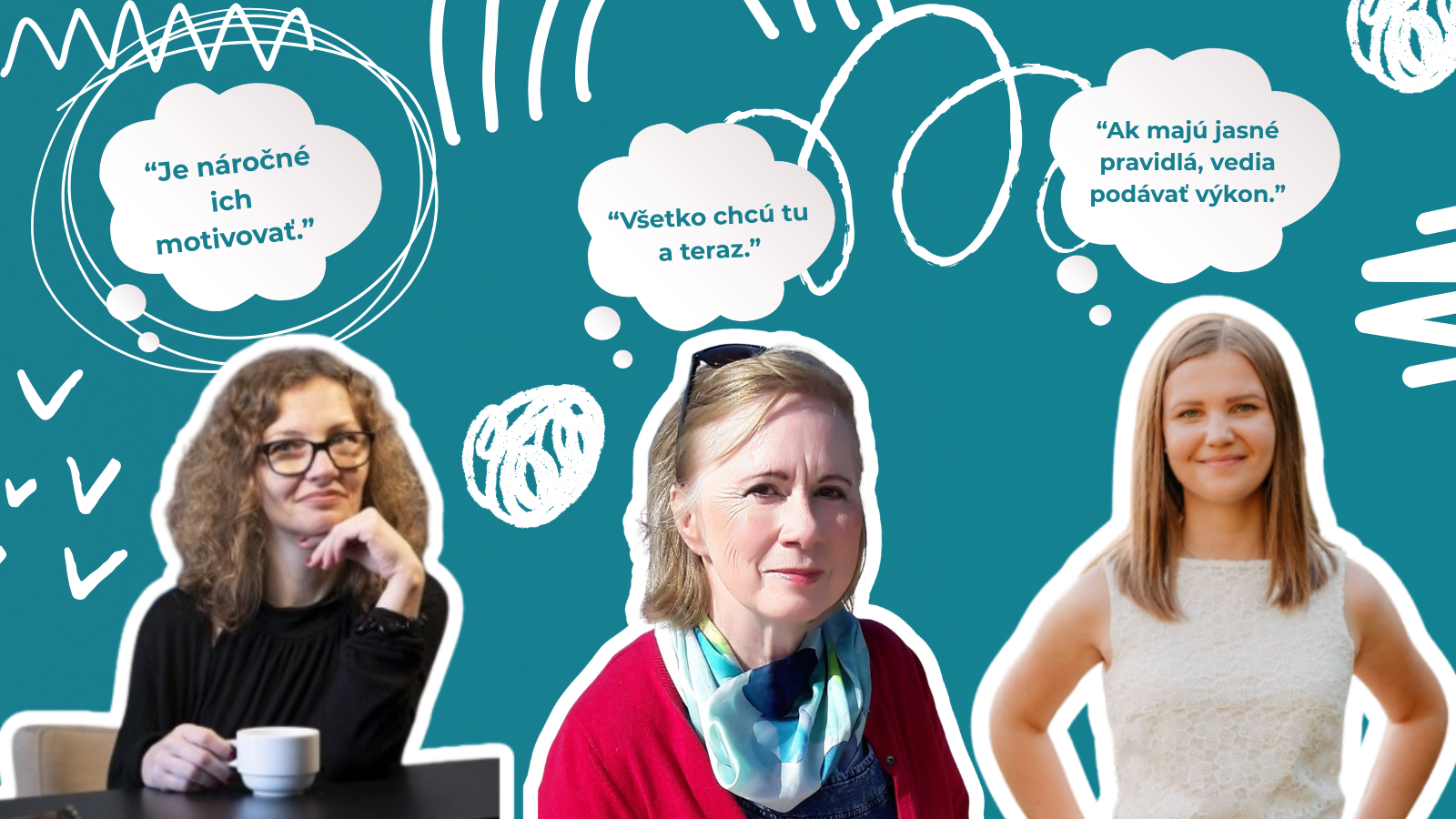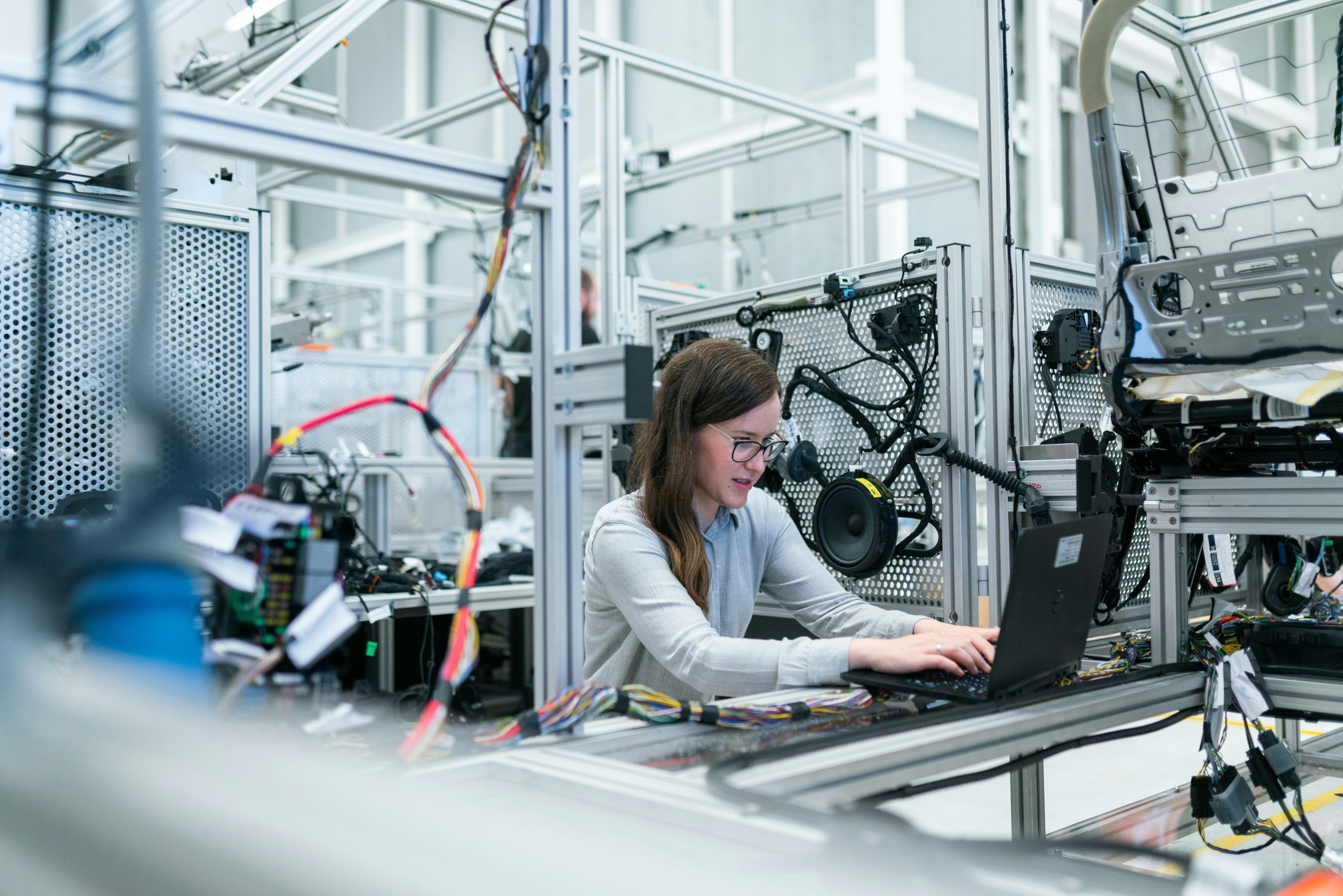Generation Z, also known as zoomers, is made up of young people born between 1996 and 2012. The youngest members are 13 years old, while the oldest are approaching 30. Many of them have therefore already had a taste of the job market. However, they are in a difficult situation, as their predecessors are millennials, who are described as a highly performance-oriented generation.
What is being said about Generation Z?
Employers, who in the past were used to their employees working even at the expense of their free time, not asking for a raise, and changing jobs only very sporadically, were taken by surprise by the upcoming generation.
“Generation Z is labeled as lazy, but that’s not the case. It’s more a misunderstanding between generations,” psychologist Katarína Vítek Janotová opens the topic.
In a recent survey of nearly 15,000 Gen Zers by Deloitte, participants reported that they often encounter prejudice: “We feel like the older generation doesn’t understand us. It’s hard for them to understand that we want to have time for our personal lives outside of work, that we care about our mental health, and that our work has meaning.”
Generation Z is also becoming a target of ridicule on social media. Videos often appear on TikTok, especially, where older colleagues make fun of them. For example, they joke that Zoomers don’t like to make phone calls, write very informal emails, or leave the office as soon as the clock strikes four.
And what are they really like?
To get to know the current generation better, we approached three experts. Marta Hanečáková, who has been working with young people in eastern Slovakia since the late 1970s. Lucia Macaláková from Prievidza, who works with youth across Slovak regions and currently leads a development program for teenagers – digiPEERS. And Simona Šintalová, who works in the organization DASATO, where they develop the personalities and careers of committed high school students from different corners of Slovakia.
“I don’t think young people are lazy. It’s always the case that the younger generation is talked about as lazier, less capable or corrupt. Boomers (children born after World War II) said that about millennials (1981-1996) and millennials are now saying that about Generation Z,” says Simona from DASATO.
Lucia from digiPEERS does not claim that the current generation is lazy either. However, according to her, they are still very different from their predecessors. They have a different relationship to responsibility for the tasks entrusted to them: “As part of my educational projects, I also meet with employers. And they say that when young people realize during the probationary period that the job does not suit them, they simply do not come one day and do not even let anyone know about it,” she gives an example. She adds that they perceive responsibility more through their own needs.

Lucia Macaláková (in orange shorts) leads a development program for teenagers – digiPEERS.
They have more options
Marta has been working with youth for over 40 years. In her experience, Generation Z is primarily focused on their own needs. “In 2004, I founded the city’s youth parliament. I remember that the young people who got involved were very active, they were reaching out to other peers to join. Teenagers who had a lot of skills came to us. And they offered them so that they could change their surroundings for the better. When we wanted to renew the parliament two years ago and we were recruiting in schools, the question that most often came from young people was – And what will I get out of it?” recalls Marta.
In the late 1990s, she also organized the first international youth exchanges. “Back then, such projects were in their infancy and the processes took longer. They had to wait six months before they actually got on the exchange,” explains Marta. She adds that the participants did not calculate, they looked forward to it, prepared and were more patient.
She compares her experience from almost thirty years ago with the present: “When I was preparing the last exchange, participants often changed because they received a better offer. Many could not wait for the activity to be implemented and preferred to start solving something they could have right away.”
According to Lucie, zoomers have unlimited possibilities these days, which makes it more difficult to motivate them. “Things only become interesting to them when they see meaning in them and fulfill one of their needs. In a way, I like that,” she says. Finally, she adds that young people are always a reflection of the times in which they live.
What at first glance appears to be a lack of motivation or responsibility has deeper roots: “If they have choice, clearly communicated expectations, and autonomy, they can be responsible and efficient. Conversely, if they do not understand the rules or do not feel aligned with the company’s values, their motivation quickly declines,” the psychologist believes.

Lucia Macaláková, Marta Hanečáková and Katarína Vítek Janotová.
They have something to offer
Although the more lukewarm approach to responsibilities and impatience of young people cannot be ignored, they also possess a number of positive traits that their predecessors cannot match.
“On the one hand, technology can take their attention away, but on the other hand, thanks to social networks, they broaden their horizons and inspire them. Compared to previous generations, they find it much easier to incorporate various technologies into their activities. If they are given the task of processing, for example, a video or a presentation and have their hands free, they are very likely to come up with something inventive,” Lucia thinks.
Young people from Generation Z also tend to work better in diverse teams. Both Lucia and Marta agree that they are more tolerant of diversity and diverse cultures.
“However, they expect the same from their employer. That they will be taken seriously regardless of how they dress, their gender, health status, or sexual orientation,” adds psychologist Vítek Janotová.
According to a Deloitte survey, Zoomers are always looking to improve, with 70% of them saying they intentionally work on their skills at least once a week.
“They don’t increase their skills to achieve high positions. They mainly want to do their work well, quickly and efficiently so that they don’t lack money or free time,” explains the psychologist.

Marta Hanečáková knows young people well. She has been working with them for more than 40 years. Photo source: Youth Parliament Stará Ľubovňa
What do they expect from work?
In addition to the requirements already mentioned , the survey also stated that they care about their company, as well as their work, having a positive impact on society and the environment.
“It’s not enough for them if a company has these values only on paper. They need to see that it really applies them and lives by them,” explains Simona.
In the survey, more than half of young people say that they regularly feel stress and fatigue at work, so they pay much more attention to their mental health. “I often hear from teenagers about depression, hyperactivity and other problems. At the same time, they are more sensitive to injustice,” Marta shares her experiences.
“Generation Z feels stress mainly due to inflation, wars, pandemics, growing social problems, and the housing crisis,” adds Katarína Vítek Janotová.
Therefore, they appreciate it if their employer provides them with, for example, psychological counseling or opportunities to take extra time off if they need to relax.

Simona Šintalová.
They value honesty.
All respondents agree that Zoomers welcome someone to take care of them. It benefits them if they are given someone to accompany them during the trial period and explain everything properly.
“They need to hear why they should perform a specific activity. It’s not enough to just give them an instruction – Do it!”, thinks Marta.
Communication between the employer and the Zoomers must be direct and transparent, according to the long-time youth worker: “From my experience, they are really good at receiving feedback, they even demand it themselves. They don’t see it as criticism, but rather as room for improvement. They are much better at this than the generations before them.”
According to Lucie, the cards should be laid out on the table during the interview: “There’s no need to drag honey-colored strings under their noses. If it turns out after the interview that the employer misled them about something, they have no problem leaving from one day to the next.”
The tendency towards honesty and openness is also evident on the other side: “They hold up a mirror to their employers and have no problem talking openly about what is not working in the workplace. If the employer grasps this well, the company can grow and modernize thanks to it. The question is whether companies will be willing to adapt, seek a common dialogue, or will they fight the zoomers and perceive them as lazy and unadaptable,” concludes Vítek Janotová.
This also applies to production.
Simona works primarily with teenagers who are going to college and then working in professional positions. However, she is also interested in how to adapt the labor market to young people in manufacturing.
“It’s an interesting segment. A place where home office sounds like a joke and work shifts are anything but flexible,” Simona opens the topic.
Data shows that Generation Z who work in manufacturing plan to leave within 3 to 6 months, and in some factories, up to 80 percent of young people leave within the first three months.
Simona cites Kimberly-Clark, a company that makes hygiene and paper products, as an inspiration. “They started small. They made changes so that people could better balance work and personal life. They also introduced rotation between teams – everyone could try different tasks and meet new colleagues from other departments,” Simona lists the changes.
He adds that the company also added a “career pathing” program, which allowed employees to choose their own career path based on their interests and strengths.

The results were not long in coming.
Thanks to these small changes, the number of employees increased by 25 percent in half a year, production increased by 20 percent, and the company experienced 70 percent less downtime. “Working with Generation Z is not about fulfilling everything you see in their eyes. It’s more about meeting them halfway. If employers take a step towards zoomers, it will work the other way around,” concludes Simona.
